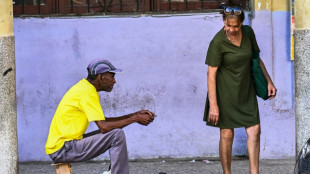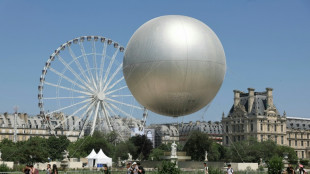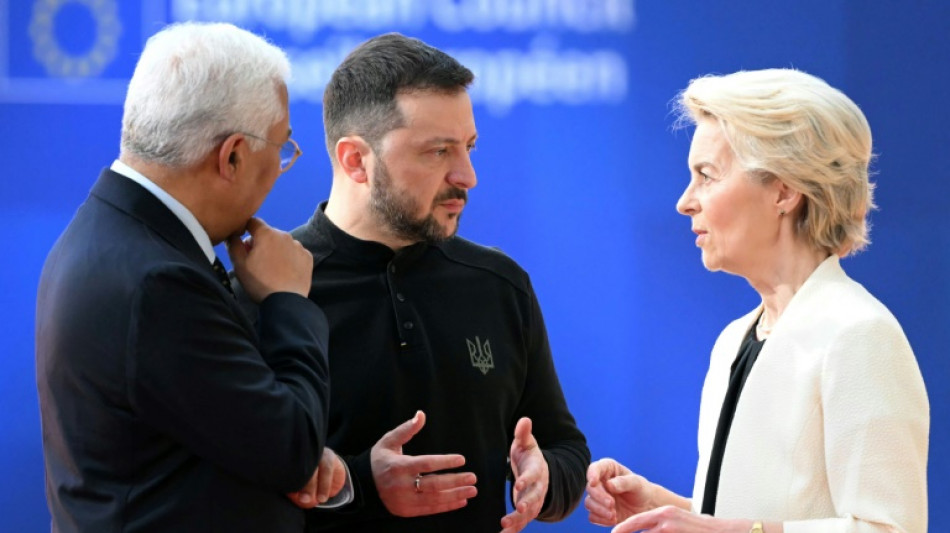
-
 At least three impacts in Israel during Iran missile attacks, 23 hurt
At least three impacts in Israel during Iran missile attacks, 23 hurt
-
Trump says US strikes 'obliterated' Iran nuclear sites
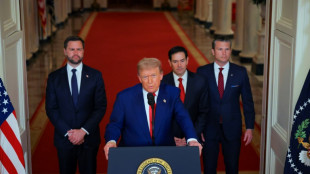
-
 Japan's high-tech sunscreens tap into skincare craze
Japan's high-tech sunscreens tap into skincare craze
-
Tesla expected to launch long-discussed robotaxi service
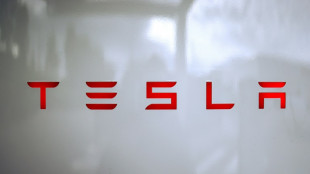
-
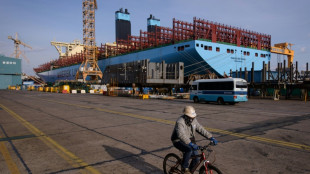 South Korea counts on shipbuilding to ease US tariff woes
South Korea counts on shipbuilding to ease US tariff woes
-
Bombing Iran, Trump gambles on force over diplomacy
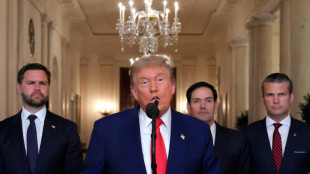
-
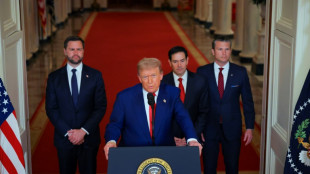 Trump says US attack 'obliterated' Iran nuclear sites
Trump says US attack 'obliterated' Iran nuclear sites
-
Itoje to Valetini: five to watch when the Lions face Australia

-
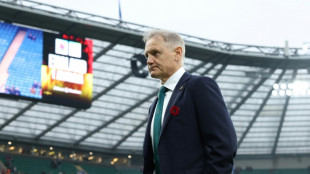 Wallabies confident but wary of wounded British and irish Lions
Wallabies confident but wary of wounded British and irish Lions
-
Utopia and fragile democracy at Art Basel fair

-
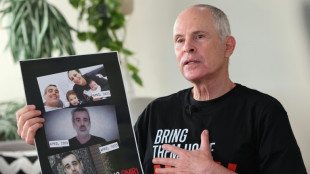 Freed Israeli hostage recounts 484-day nightmare in Gaza
Freed Israeli hostage recounts 484-day nightmare in Gaza
-
River Plate frustrated by Monterrey in 0-0 stalemate

-
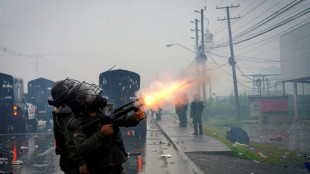 Panama cuts internet, cell phones in restive province
Panama cuts internet, cell phones in restive province
-
Tens of thousands join pro-Palestinian marches across Europe
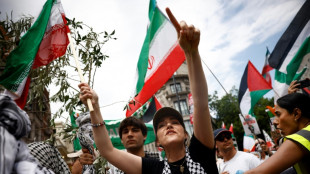
-
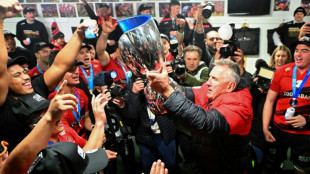 Coach Penney unsure of return to Super Rugby champions Crusaders
Coach Penney unsure of return to Super Rugby champions Crusaders
-
Trump says US 'obliterated' Iran nuclear sites, threatens more
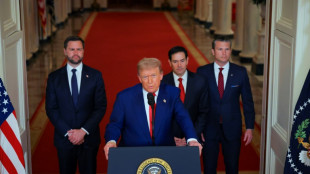
-
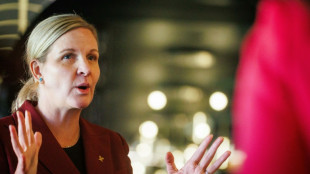 Olympic chief Kirsty Coventry's steeliness honed by hard knocks
Olympic chief Kirsty Coventry's steeliness honed by hard knocks
-
Outgoing IOC president Thomas Bach faced mammoth challenges
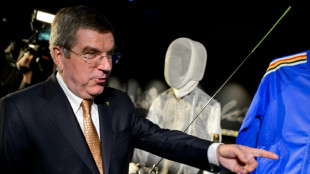
-
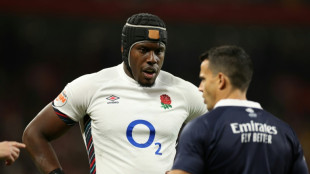 Maro Itoje comes of age with Lions captaincy
Maro Itoje comes of age with Lions captaincy
-
Trump says US bombs Iran nuclear sites, joining Israeli campaign
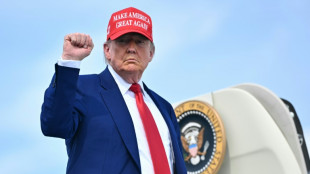
-
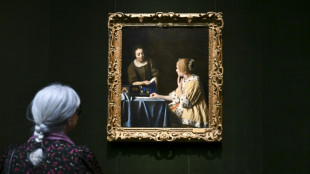 In New York, Vermeer show reveals art of the love letter
In New York, Vermeer show reveals art of the love letter
-
Ex-members of secret US abortion group fear return to dark era

-
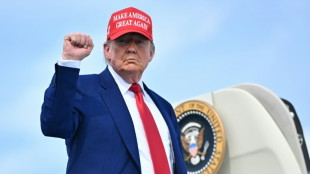 Trump says US launched 'very successful' attack on Iran nuclear sites
Trump says US launched 'very successful' attack on Iran nuclear sites
-
Man City squad must be trimmed: Guardiola
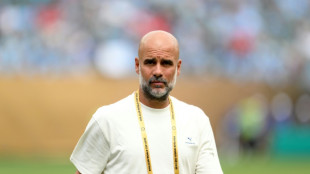
-
 Minjee Lee grabs four-shot lead at 'brutal' Women's PGA Championship
Minjee Lee grabs four-shot lead at 'brutal' Women's PGA Championship
-
Olympic balloon rises again in Paris
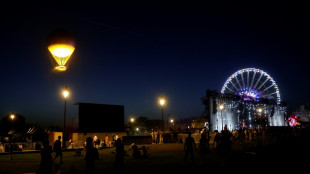
-
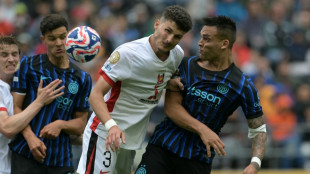 Inter Milan, Dortmund claim first wins at Club World Cup
Inter Milan, Dortmund claim first wins at Club World Cup
-
South American teams lay down the gauntlet to Europe at Club World Cup
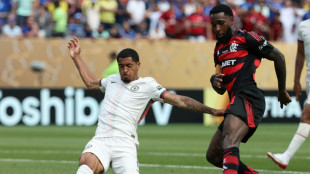
-
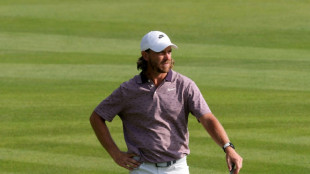 Fleetwood grabs PGA Travelers lead as top-ranked stars fade
Fleetwood grabs PGA Travelers lead as top-ranked stars fade
-
'Lucky' Lamothe hat-trick guides Bordeaux-Begles into Top 14 final

-
 Lamothe hat-trick guides Bordeaux-Begles into Top 14 final
Lamothe hat-trick guides Bordeaux-Begles into Top 14 final
-
UK PM Starmer says Kneecap should not perform Glastonbury
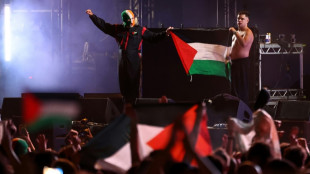
-
 Inter Milan strike late to beat Urawa Reds at Club World Cup
Inter Milan strike late to beat Urawa Reds at Club World Cup
-
Dortmund stars hide from sun at Club World Cup 'sauna'
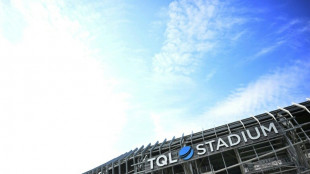
-
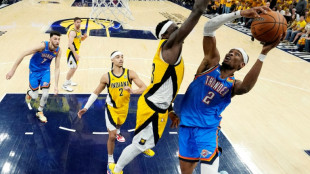 One game to win it all: Thunder host Pacers in NBA Finals game 7
One game to win it all: Thunder host Pacers in NBA Finals game 7
-
Russell says he's buried Sexton hatchet as old rivals united in quest for Lions glory

-
 Nigeria receives over 100 looted artifacts from the Netherlands
Nigeria receives over 100 looted artifacts from the Netherlands
-
I. Coast president Ouattara tapped to run for fourth term
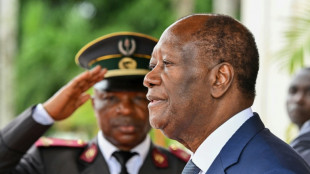
-
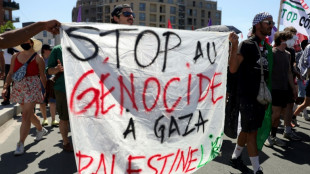 Protesters slam war profiteering, Israel at French air fair
Protesters slam war profiteering, Israel at French air fair
-
Belarus frees jailed opposition leader after appeal from US
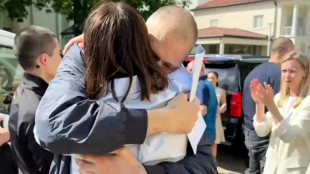
-
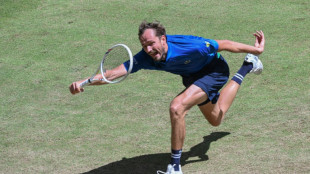 Medvedev dispatches home hope Zverev to meet Bublik in Halle final
Medvedev dispatches home hope Zverev to meet Bublik in Halle final
-
Nigeria receives over 100 looted artifacts from Netherlands
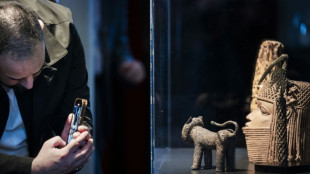
-
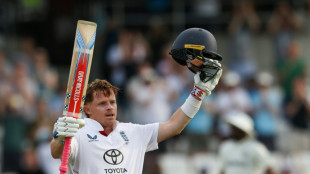 Hundred hero Pope answers England's prayers as Bumrah strikes in first Test
Hundred hero Pope answers England's prayers as Bumrah strikes in first Test
-
Bellingham strikes as Dortmund sink Sundowns in Club World Cup thriller
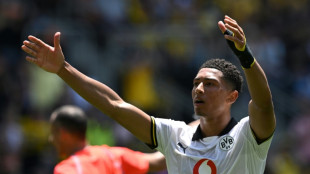
-
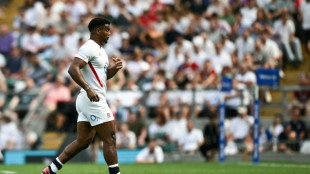 Feyi-Waboso sees red as France beat England in unofficial Test
Feyi-Waboso sees red as France beat England in unofficial Test
-
From attendances to NBA-style walkouts: Club World Cup talking points

-
 Eight dead in Brazil hot air balloon accident
Eight dead in Brazil hot air balloon accident
-
Bellingham strikes as Dortmund sink Sundowns
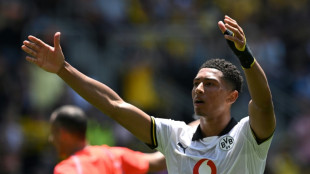
-
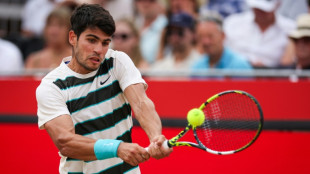 Alcaraz sets up Queen's final clash with Lehecka
Alcaraz sets up Queen's final clash with Lehecka
-
MLB suspends Padres pitcher three games for hitting Ohtani


Europe shifts gears for the Trump era
Barely a month ago, a phone call between Donald Trump and Vladimir Putin sent an unmistakable message across the Atlantic: the United States may not be there forever to keep Europe safe from an aggressive Russia.
By the time the pair spoke again this week, a whirlwind of diplomacy had seen Europe juggle alliances and rewrite long-held rules -- with a show of assertiveness not always associated with the Old Continent.
"The advent of the Trump administration has given history a shove, and concentrated minds about what needs to be done," summed up Ian Lesser of the German Marshall Fund think tank.
Here is a look at the shifts taking place -- and what might lie ahead -- as the 27-nation European Union holds on Thursday its third summit in six weeks aimed at ramping up its defences.
- 'New actors' -
From Brussels to Paris to London and back to Brussels -- the frenzy of diplomacy sparked by Trump's outreach to Moscow over Ukraine has blurred a number of lines.
Back-to-back meetings have involved sub-groups of countries from in and outside the EU, and for the bloc's formal talks, "likeminded" partners from Britain to Canada have been kept in the loop, as they will be again this week.
More often than not, NATO's secretary general has joined in, intent on acting as a bridge with the new US administration.
The shifting formats highlight the challenge posed by Hungary's Viktor Orban, who is friendly to both Trump and Russia and has repeatedly held up unanimous EU action on Ukraine.
For the second time running, leaders expect to settle in Brussels on a 26-nation statement to sidestep what a senior EU official termed the "strategic divergence" with Orban over the conflict.
From big tent to close-knit huddle, the flexibility also reflects the shape of the "coalition of the willing" emerging around Ukraine, and the complexities of bolstering Europe's defences longer-term.
"It's clear that a Europe that takes defence, not just more seriously, but more autonomously, is going to want to include new actors including Britain, Norway but also Turkey," said Lesser, who also sees a chance of a "stronger European pole" within NATO emerging in times ahead.
- Old friends -
Britain's move back towards Europe is one of the most striking consequences of America's disengagement, even as a formal bid to rekindle ties post-Brexit showed signs of floundering.
Old gripes were bubbling up again between London and some European capitals accusing it of cherry-picking in its "reset" push -- and EU insiders still believe any broad agreement will be difficult.
But British Prime Minister Keir Starmer has emerged as a key player in European efforts to keep the United States engaged, secure a hoped-for ceasefire in Ukraine, and get serious about the continent's own security.
"This has really helped turn a page with the United Kingdom," said Camille Grand, policy fellow at the European Council on Foreign Relations. "Both sides are realising that, when it comes down to it, we can come together around the things that truly matter."
In the short term, Grand still predicts a tussle over "who gets access to Europe's cash for rearmament", with "buy European" provisions baked into a 150-billion-euro ($163-billion) loan programme presented this week.
But Britain could come in on the project if it signs a security deal with the EU.
And with Starmer and France's Emmanuel Macron working in lockstep on a Ukraine coalition, that bolsters the case of those seeking closer EU-UK cooperation on security at least.
- Rules be damned? -
The prospect of losing US security protection has also triggered a minor earthquake involving the EU's sacrosanct budget deficit rules.
Brussels now wants the fiscal rules put on hold for four years to unlock potential defence spending worth 650 billion euros, to nods from countries who would once have howled in protest.
Calls to go further and overhaul those same rules have emanated from historically reluctant spender Germany -- itself tearing up decades of precedent by backing a defence spending "bazooka" pushed by leader-in-waiting Friedrich Merz.
More radical still, Merz has called for talks with France and Britain on a shared nuclear deterrent, while Poland's Donald Tusk has shown interest in accessing atomic weapons.
"Many taboos have been shattered in recent weeks," said Lesser, on everything from deterrence to finance.
The caveat? Influential Germany and the Netherlands remain firmly opposed to bigger EU joint borrowing on the scale deployed to overcome the Covid pandemic.
"Right now, it's not there," the bloc's top diplomat Kaja Kallas acknowledged Wednesday. "But is it completely off the table? I don't think so."
Y.Zaher--SF-PST

